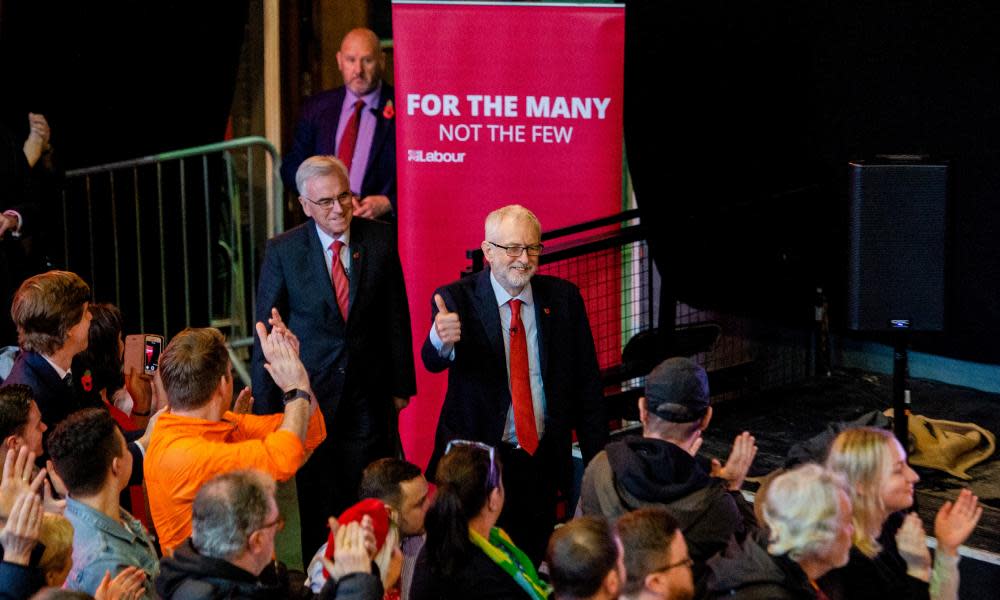Labour’s radicalism is of no use if it cannot win general elections

Andy Beckett gets in early with a positive message before what might be Labour’s fourth election loss in a row (Win or lose, Labour has redefined British politics, Journal, 16 November). His good news is that the very approach that could bring defeat has also initiated a change nationally in progressive thinking about how politics should be done, even if we have to wait a few years for this drift to the left to strengthen.
Balancing the difference between having bold political ideas and being in a position to put them into practice has been a recurrent difficulty for the British left. Nice to know that, for the time being, we can transcend that compromised, timid thinking, so beloved of Conservatives, which holds that “redefining” British politics usually involves winning a parliamentary majority through the building of broad electoral appeal.
John Corner
Liverpool
• Andy Beckett is right to point out the contrast between the bold Corbyn agenda and the cautious triangulating New Labour approach. However, New Labour was able to build a broad electoral coalition of voters that won three general elections while the current party is trailing the Tories among working-class voters, according to the polls.
I welcome the rediscovered role for the state, but, as a local government leader delivering public services after nine years of austerity, all that will be merely academic if the Tories are returned with a large majority on 13 December. It is they who will redefine British politics with exit from the EU and privatised and broken public services for which they care very little.
Steve Flatley
York
• I was angered by Andy Beckett’s article about Labour’s ideas for radical new policies and how the electorate are not (yet) listening.
It epitomises the arrogance that is endemic within the party hierarchy – the belief that the left-of-centre voter will support Labour in the coming election, come what may, solely for its radicalism. Might it be that the electorate does not want such radicalism? What if they prefer the more “limited but achievable” Blair-like approach that Beckett describes? Indeed when discussing the differences between the Corbyn and Blair approaches, Beckett does not mention the most important difference – Blair won three general elections and Corbyn has yet to win one.
Beckett also plays down the impact of the Labour party policy on Brexit, which has driven many previously loyal Labour voters away in favour of more firmly “remain” parties. Their votes are up for grabs but the Labour party chose to ignore them in the arrogant belief that their radical policies will win on the day. Being radical is easy when you are permanently in opposition.
Shaun Soper
Midhurst, West Sussex
• Join the debate – email guardian.letters@theguardian.com
• Read more Guardian letters – click here to visit gu.com/letters
• Do you have a photo you’d like to share with Guardian readers? Click here to upload it and we’ll publish the best submissions in the letters spread of our print edition

 Yahoo News
Yahoo News 
